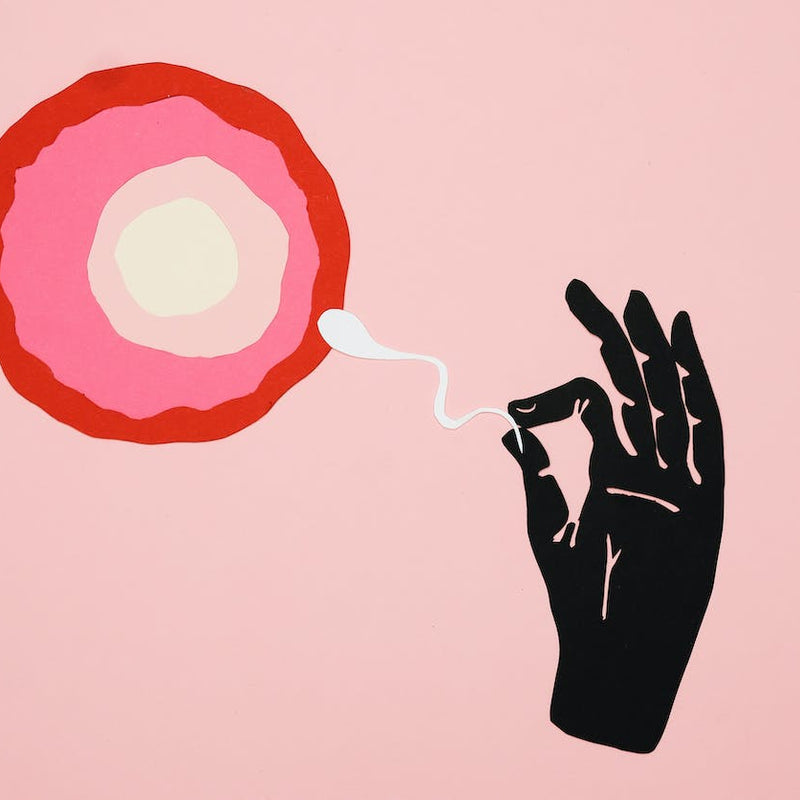How to Use Fertility Lubricant

Interested in trying our fertility-friendly lubricant, but wondering how exactly to use it? Whether you’re a novice or a pro, OBGYN Dr. Gleaton explains helpful tips on how to get the best experience with your sperm friendly lube.
Sometimes TTC takes a surprising amount of work—scheduling sex around ovulation, making doctors appointments, testing your eggs and sperm. These things can take away from the TTC experience and can make getting pregnant feel like a chore. Fertility-friendly lube is a great way to support your fertility journey while maintaining the romance when trying to conceive.
Personal lubricant
Personal lubricant is a product used during sex to reduce friction and increase comfort. Personal lubricants typical fall into one of three categories:
- Water-based
- Silicone-based
- Oil-based
Fertility-friendly lubricant
In order for lube to be fertility-friendly, it must go through biocompatibility testing to ensure no harm on sperm, eggs, or embryos. TTC lubricants must be cleared by the FDA and are specially formulated to maintain a pH, viscosity, and osmolarity that are compatible with sperm. It’s also important that TTC lube not contain any parabens (more on this below), which can disrupt hormones and the body’s endocrine system.
The Lube is water-based, pH balanced, made without parabens, and has been created to simulate cervical mucus so that sperm can thrive.
Why paraben-free is so important
Parabens (commonly listed as methylparaben, ethylparaben, propylparaben, butylparaben, and orisobutylparaben) are endocrine disruptors—chemicals that can interfere with our endocrine system. When inside the body, parabens can mimic estrogen. Because of this, the European Union has banned parabens in cosmetic and beauty products. This is for good reason; preliminary evidence from a study conducted at Harvard University linked high paraben build up in the body with reduced fertility. When TTC, stay paraben-free.
How non fertility-friendly lubricants can harm sperm
You may have a better understanding of the health and quality of your sperm because you took a sperm test at home or at the doctor’s office, but how are the lubricants you’re using affecting that? Using lubricants that were not designed for fertility can mean you’re hurting your chances of conceiving naturally. Some popular retail lubes can significantly disrupt sperm motility and vitality, leaving sperm immobile or killing off a majority of sperm cells after exposure to the lube. Studies have also shown how DNA fragmentation can occur due to the use of certain lubricants. Without the majority of sperm cells being able to live and swim freely while using lube, the chances of conceiving are significantly decreased. Non fertility-friendly lubes haven’t been tested or formulated for certain factors such as sperm quality, vaginal pH, and cervical mucus. So if your goal is to get pregnant, make sure you’re choosing a sperm-friendly lubricant.
Who can benefit from personal lubricant
Absolutely everyone can benefit from personal lubricant, regardless of sexual orientation or desired pregnancy outcome. Lube is great for increasing pleasure and reducing friction and doesn’t necessarily have to be used to aid in fertility.
Along those lines, it’s important to consider the type of lube you’re using and your needs—for example, oil-based lubes can render condoms ineffective by tearing or breaking down latex.
Applying personal lubricant
One great thing about lube—there’s no wrong way to use it. We recommend warming the lube in your hands first and then applying liberally to yourself and your partner’s genitals. Then reapply as needed.
Personal lubricant can be a fun addition into anyone’s sex life; however, there are special considerations for couples trying to make a baby. Some lubricants can harm sperm’s ability to survive and swim, disrupting the process of conception. For a lubricant guaranteed to help sperm thrive and move things along in the bedroom, check out our FDA-cleared, fertility-friendly lubricant, The Lube.
Reach Out, We're Here
Have questions about your order or products? For the speediest answer, check out our FAQ section. Need something else? Come find us below.
Please keep in mind our regular business hours; Monday-Friday, 9am-5pm CT.
Customer Support
support@natalist.com
Press Inquiries
media@everlyhealth.com
Business & Partnerships
team@natalist.com
Affiliates + Influencers
team@natalist.com
Job Openings
Careers Page
























